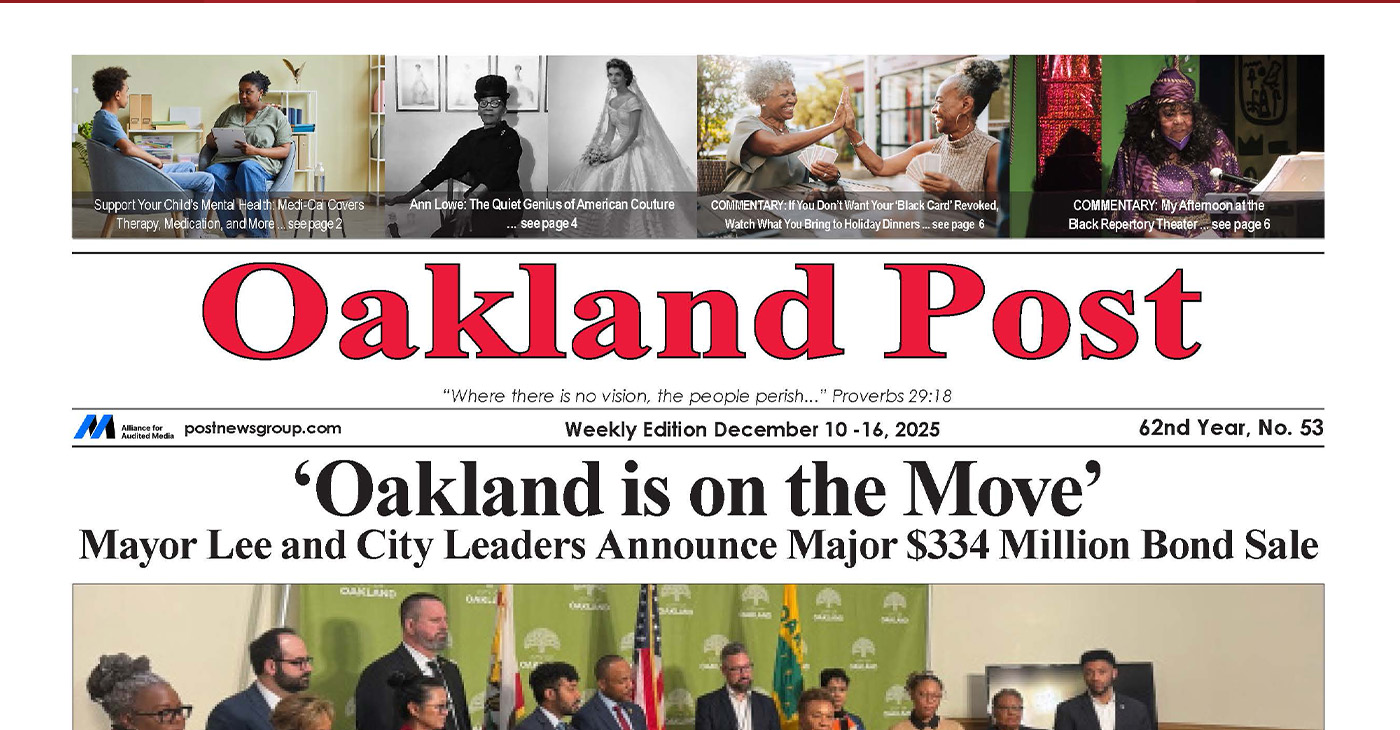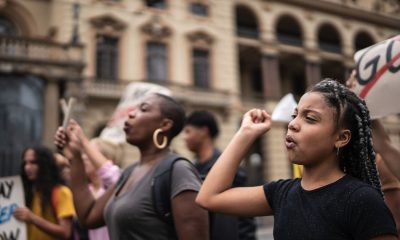Economics
Growing Effort to Reform California’s Money Bail System

A coalition of labor, economic justice, community-based, and civil liberties organizations are supporting lawmakers’ unveiling of details to reform California’s money bail system – a system that that many consider to be fraught with wasteful inefficiencies that fuel poverty and racial inequalities in California’s criminal justice system and doesn’t keep communities safe.
“Our justice system is built on the premise of equal protection for all under the law. The current bail system exacerbates California’s racial and economic inequality, punishes people for being poor, and doesn’t make us safer,” say the co-sponsors of the California Money Bail Reform Act.
“There are more effective and fairer ways to protect public safety and make sure that people come back to court for trial,” say the co-sponsors, which include the American Civil Liberties Union of California, Anti-Recidivism Coalition (ARC), California Public Defender Association (CPDA), Californians for Safety & Justice (CSJ), Ella Baker Center (EBC), Essie Justice Group, Silicon Valley De-Bug, SEIU, and Western Center on Law & Poverty.
AB 42 and SB 10, the California Money Bail Reform Act, introduced by Assemblymember Rob Bonta and Senator Robert Hertzberg, are identical legislative proposals representing a growing consensus among policymakers, advocates, and impacted communities that California must shift away from a system where thousands of people are detained pretrial simply because they cannot afford to post money bail.
“When my brother was arrested, my mom had to put up our house for his bail. Now it’s like we owe them everything, otherwise we lose the house. We are forever in debt to the bail bondsman because of it. My mom has to work harder to keep up on the bills and stay out of debt, because they have so much control over our lives now,” says LeChar, a Suisun City resident and member of Essie Justice Group.
Currently, when someone is arrested for a crime, they can post bail to be released from police custody based on a pre-determined bail schedule. Judges also rely on the bail schedule to assign bail amounts at arraignment hearings. Unable to afford the total bail amounts, many people pay a for-profit bail bonds company a non-refundable 10 percent fee based on their total bail amount, a fee they don’t get back even if their case is dismissed or they are found innocent. Many people stay in jail for weeks, months, and sometimes years while their case moves forward, or plead guilty to a crime they may or may not have committed.
In California, over 60 percent of people in jails are awaiting trial or sentencing. As compared to the rest of the country, California keeps far more people in jail while they await trial. This can have significant and long-lasting impacts on both the outcome of people’s cases, as well as their health, wellbeing, and economic security. People locked up for even just a few days may lose their job, car, home, and even child custody.
“My son has struggled with his mental wellness for the last several years. When he turned 24, he was arrested. His bail was set at $150,000. I did everything I could to come up with the ten percent of $150,000 it would take to get him out. But we couldn’t make it happen. Because of his illness, in jail, he was put in solitary confinement. He gets worse and worse every day. He needs treatment. Now he has more traumas than when he went in. I wish I could have pulled together the money, even for him to come home for a month; it would have changed so much,” says Lisa, resident of Oakland and member of Essie Justice Group.
Research shows that bail bond amounts for African American men are 35 percent higher than bond amounts for white men. Latino men have a 19 percent higher bond amounts than white men. Black people ages 18 through 29 received higher bail amounts than any other group. Among people for whom money bail is set, the odds of Black and Latino people being detained before trial is more than twice the odds of detention for white people.
Activism
Oakland Post: Week of December 24 – 30, 2025
The printed Weekly Edition of the Oakland Post: Week of – December 24 – 30, 2025

To enlarge your view of this issue, use the slider, magnifying glass icon or full page icon in the lower right corner of the browser window.
Activism
Oakland Post: Week of December 17 – 23, 2025
The printed Weekly Edition of the Oakland Post: Week of – December 17 – 23, 2025

To enlarge your view of this issue, use the slider, magnifying glass icon or full page icon in the lower right corner of the browser window.
Activism
Oakland Post: Week of December 10 – 16, 2025
The printed Weekly Edition of the Oakland Post: Week of – December 10 – 16, 2025

To enlarge your view of this issue, use the slider, magnifying glass icon or full page icon in the lower right corner of the browser window.
-

 #NNPA BlackPress4 weeks ago
#NNPA BlackPress4 weeks agoLIHEAP Funds Released After Weeks of Delay as States and the District Rush to Protect Households from the Cold
-

 Alameda County4 weeks ago
Alameda County4 weeks agoSeth Curry Makes Impressive Debut with the Golden State Warriors
-

 #NNPA BlackPress4 weeks ago
#NNPA BlackPress4 weeks agoSeven Steps to Help Your Child Build Meaningful Connections
-

 #NNPA BlackPress4 weeks ago
#NNPA BlackPress4 weeks agoSeven Steps to Help Your Child Build Meaningful Connections
-

 #NNPA BlackPress4 weeks ago
#NNPA BlackPress4 weeks agoTrinidad and Tobago – Prime Minister Confirms U.S. Marines Working on Tobago Radar System
-

 #NNPA BlackPress4 weeks ago
#NNPA BlackPress4 weeks agoThanksgiving Celebrated Across the Tri-State
-

 #NNPA BlackPress4 weeks ago
#NNPA BlackPress4 weeks agoTeens Reject Today’s News as Trump Intensifies His Assault on the Press
-

 #NNPA BlackPress4 weeks ago
#NNPA BlackPress4 weeks agoBreaking the Silence: Black Veterans Speak Out on PTSD and the Path to Recovery





















































